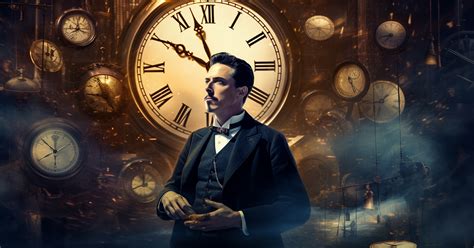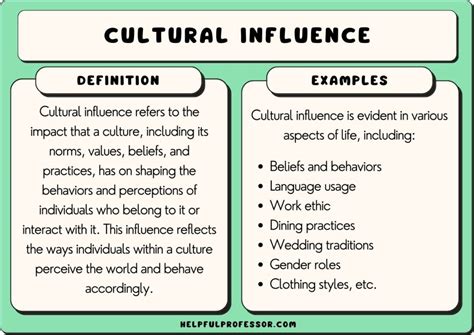There is an undeniable allure to days gone by, a magnetic pull that draws us towards the past. We find ourselves longing for a time we never experienced, yearning for the simplicity and charm of a bygone era. It's a sentiment that transcends generations, leaving no one untouched by its captivating power.
Indulging in Memories
In a world that moves at an ever-increasing pace, where technological advancements dominate our daily lives, it's easy to feel disconnected from the present. We seek solace in nostalgic daydreams, allowing ourselves to be transported to a different time, a simpler time. We yearn for the embrace of familiar sights, sounds, and smells that evoke a sense of comfort and belonging.
The Allure of the Unattainable
We are drawn to the past not only because of the memories it holds but also because it represents something unattainable. The pages of history are filled with tales of grandeur, romance, and adventure, leaving us captivated and longing for a taste of those experiences. We crave the elegance and grace of a bygone era, a world untouched by the complexities of modernity.
Escaping the Present: Unraveling the Fascination with a Forgotten Era

As our thoughts wander away from the hustle and bustle of today, our minds often find solace in reminiscing about a distant period. This captivating allure for a bygone age has us pondering the reasons behind our fixation on a forgotten era. Exploring deep within our psyche, we uncover the intricate mechanisms that drive our yearning for the past.
One of the driving forces behind this enchantment lies in our innate longing for nostalgia. The human mind seeks comfort in familiar and pleasant memories, transporting us to a time when life may have seemed simpler or more harmonious. Our subconscious mind uses this reminiscence as a refuge, allowing us to momentarily escape the complexities and uncertainties of the present.
Furthermore, our fascination with a forgotten era can be attributed to a desire for a different world. We are often drawn to the romanticized notions of a past that seems more idyllic, where societal norms and personal connections carried a different meaning. This longing for a bygone era stems from our fascination with the unknown, the allure of exploring a different way of life that shaped the foundations of our current existence.
Additionally, the allure of a forgotten era lies in the cultural and historical significance attached to it. Through our collective consciousness, we inherit the stories and legacies of those who came before us. We yearn to understand and connect with our roots, as we navigate our own lives in a rapidly evolving world. The palpable sense of history and the rich tapestry of human experience embedded in a bygone era evoke a profound sense of fascination and curiosity.
| Reasons for Our Fascination with a Forgotten Era: |
|---|
| Longing for nostalgia |
| Desire for a different world |
| Cultural and historical significance |
Nostalgia: Unveiling the Origins of Our Longing for the Past
In this section, we delve into the deep-rooted sentiments of nostalgia, exploring the profound yearning that resides within us for times gone by. Experiencing a wave of emotions and memories, nostalgia captures our imagination and transports us to yesteryears. Without explicitly referencing a specific time period, we will unravel the essence of nostalgia, uncovering the reasons behind our fascination with the past.
1. A Reflection of Personal Moments: Nostalgia often stems from a desire to relive cherished moments that shaped our lives. By revisiting memories, we attempt to reclaim the joy, comfort, and sense of identity associated with those special instances. These recollections can range from childhood adventures to significant milestones, intertwining our personal history with a sense of nostalgia.
2. Cultural and Societal Influences: The collective memory of a culture or society can contribute to the nostalgic longing for a bygone era. Past eras hold a symbolic significance, representing a particular set of values, traditions, or art forms that may no longer hold prominence in the contemporary world. Nostalgia becomes a means to reconnect with a sense of belonging and to honor cultural heritage.
3. An Escape from the Present: Amidst the complexities and uncertainties of the present, nostalgia offers a comforting escape. It provides a retreat to simpler times, where life seemed less complicated, and the pace of existence felt more manageable. Nostalgia serves as a refuge, allowing us to momentarily detach from the present and immerse ourselves in the familiar rhythms of the past.
4. A Source of Inspiration: Drawing inspiration from the past is not uncommon, as nostalgia often sparks creativity and innovation. By delving into the history of different eras, we gain insights into the thoughts, experiences, and achievements of previous generations. This wellspring of inspiration can fuel artistic endeavors, fashion trends, and even technological advancements as we strive to recreate and reimagine aspects of long-gone times.
Through an exploration of these fundamental aspects, we begin to decipher the interconnected threads that bind us to the past. Nostalgia acts as a doorway, forging a link between our present selves and the memories, emotions, and experiences that define us as individuals and societies. Join us as we unravel the enigma of nostalgia and delve into the intricate reasons behind our yearning for the past.
The Psychological Significance of Reliving Memories and Yearning for a Different Era

Exploring the depths of the human psyche reveals the profound implications of revisiting past experiences and pining for a time that has long passed. Engaging in the act of reminiscing transports individuals to a mental space where evocative emotions mingle with vivid recollections. It is within this emotional landscape that people often find solace, nostalgia, and a sense of belonging. The yearning for a different era arises as a longing for the comfort and familiarity of a bygone time, enhanced by the spectrum of emotions invoked by these memories.
As the mind delves into the past, it unearths fragments of memories meticulously preserved over time. These fragments not only serve as a tapestry of personal experiences but also influence an individual's self-identity and perception of the present. By reliving these memories, individuals can reestablish connections with their inner selves and grapple with the complexities of personal growth. The desire to return to a different era stems from a deeply rooted urge to escape from the demands and uncertainties of the present, seeking refuge in a period characterized by perceived simplicity or a stronger sense of community.
Psychologically, the act of reliving memories and yearning for a different time can offer a form of escapism, providing respite from the challenges and stresses of the modern world. By indulging in selective reminiscence, individuals can temporarily detach themselves from present realities, immersing in the comforting embrace of cherished memories. In this context, longing for a bygone era can be seen as a coping mechanism, an attempt to regain control over a world that seems increasingly complex and unpredictable.
Moreover, the psychological implications of reliving memories and yearning for a different era extend beyond personal introspection. Collectively, societal nostalgia can emerge as a shared sentiment, fostering a sense of unity and identity among individuals who share similar cultural backgrounds or experiences. Through this shared longing, communities can foster a sense of cohesion, drawing strength and inspiration from the past as they navigate the challenges of the present.
Escaping Reality: How Our Dreams Transport Us Back to a Bygone Age
In our mind's eye, we often find solace in reliving moments from a time long past. These reveries not only offer an escape from the present but also provide a glimpse into a different era, allowing us to experience life as it once was. Through the medium of dreams, we embark on a journey that transcends the boundaries of time, bringing us face to face with a bygone age filled with nostalgia and intrigue.
As we close our eyes, the veil of reality lifts, and we are transported to a realm where antiquated traditions and customs come alive. Our dreams become a portal connecting us to the past, where we can witness historical events unfold and immerse ourselves in the atmosphere of a different time. Through vivid imagery and fleeting sensations, our minds recreate the essence of eras long gone.
- As we wander through the cobblestone streets of ancient cities, surrounded by grand architecture and bustling marketplaces, we can almost taste the air thick with the aroma of spices and hear the echoes of long-forgotten languages.
- We find ourselves donning ornate attire and participating in extravagant balls, where etiquette and formality reign supreme, allowing us to step into the shoes of those who lived during an era characterized by elegance and opulence.
- We experience the thrill of exploration and adventure as we embark on daring expeditions to uncharted lands, retracing the footsteps of explorers who sailed across vast oceans or traversed treacherous terrains.
- Through our dreams, we delve into the lives of our ancestors, witnessing their joys, struggles, and triumphs, gaining a deeper understanding of the foundations upon which our present is built.
In this timeless realm of dreams, we are free to explore the mysteries of the past, to experience a different reality that existed long before our time. Through the lens of our subconscious, we connect with the tapestry of history, weaving ourselves into its fabric and allowing the past to shape our present. In returning to bygone eras within our dreams, we find solace, inspiration, and a renewed appreciation for the complexities of human existence.
The Impact of Cultural Influences on Our Longing for a Nostalgic Past

When pondering over the yearning we feel for times gone by, it becomes apparent that a multitude of factors shape our desire to idealize a dated era. While a myriad of societal and historical elements contribute to this sentiment, it is the aspects of culture that carry a substantial influence on our inclination to romanticize the past.
Exploring the Fascination of Rediscovering History through Travel
Modern-day adventurers seeking to immerse themselves in the past often turn to historical tourism, an intriguing and captivating way to experience the allure of reliving bygone times. By embarking on journeys to iconic landmarks and heritage sites, individuals can delve deep into the tales and treasures of previous eras, allowing them to forge a deep connection with history.
With historical tourism, travelers can broaden their understanding of past events, cultures, and societies, gaining insights into the people and moments that have shaped the world we live in today. By exploring archaeological ruins, strolling through ancient cities, or visiting well-preserved historic sites, individuals can witness firsthand the remnants of centuries long gone, evoking a sense of awe and wonder.
Engrossed in the experience, visitors have the opportunity to connect with the stories of past civilizations, understanding the challenges, triumphs, and daily life of those who came before us. By treading the same paths and stepping within the same walls as historical figures, travelers can vividly imagine the sights, sounds, and feelings of a different time, enriching their knowledge of humanity's collective memory.
The allure of reliving the past through travel is not limited to a specific era or location. Historical tourism encompasses a wide range of possibilities, from exploring ancient ruins such as Machu Picchu or Pompeii to stepping into the opulent palaces of Queen Elizabeth's time. Each destination tells a unique narrative, offering a chance to step back in time and temporarily escape the constraints of the present.
Embracing the essence of historical tourism, individuals can gain a deep appreciation for the legacy left by our ancestors. The experience prompts reflection on the progress made, the values upheld, and the lessons learned from past generations, inspiring a greater sense of gratitude and responsibility towards preserving and cherishing our shared heritage.
In conclusion, historical tourism serves as a remarkable gateway for individuals to explore the seductive charm of reliving the past through travel. By embarking on these captivating journeys, travelers can gain a profound understanding of the world's history, allowing them to connect with previous eras, cultures, and societies in an unforgettable manner.
Genetic Predisposition and Our Fascination with the Past

Human beings have a natural inclination, deeply rooted in our genetic makeup, to feel a strong connection with the past. Our fascination with previous eras, cultures, and experiences goes beyond mere curiosity or sentimental longing. It is an inherent trait that influences our sense of identity, shapes our perspectives, and drives our actions.
Since ancient times, humans have been curious about their origins and have sought to understand the world in which they live. This innate curiosity has been passed down through generations, encoded within our DNA. It is this genetic predisposition that compels us to seek out knowledge and immerse ourselves in the stories, artifacts, and traditions of our ancestors.
- A Sense of Belonging: Exploring the past offers us a sense of connection and belonging, allowing us to forge links with our heritage and understand where we come from. By uncovering our ancestral roots, we establish a foundation that helps us navigate the complexities of the present.
- Learning from History: Looking back at historical events allows us to learn valuable lessons about the triumphs and failures of previous generations. This knowledge enables us to make better decisions and shape a brighter future for ourselves and future generations.
- Identity Formation: Our fascination with the past serves as a tool for identity formation. By understanding the experiences of our predecessors, we gain insights into our own values, beliefs, and cultural practices.
- Emotional Connection: Nostalgia, a powerful emotional response, often accompanies our exploration of the past. Revisiting the customs and traditions of bygone eras evokes a sense of comfort, familiarity, and emotional security, enriching our present lives.
- Appreciation for Progress: By examining the accomplishments of those who came before us, we develop a deep appreciation for the progress and advancements made over time. This appreciation fuels our enthusiasm for continuous improvement and innovation.
While our genetic predisposition plays a significant role in our obsession with the past, it is important to strike a balance between honoring our heritage and embracing the present. By understanding the influence of our genes on our fascination with the past, we can gain a deeper appreciation for the rich tapestry of human history and propel ourselves towards a brighter future.
The Impact of Dwelling in the Past: Is It Beneficial or Detrimental for Our Well-being?
Reflecting on our past experiences, reminiscing about bygone times, and longing for an era that has come to pass, are often regarded as natural human tendencies. While indulging in nostalgia can provide temporary comfort and a sense of connection to our roots, there are intriguing questions surrounding the consequences of living in the past.
When constantly fixated on the past, we risk hindering our personal growth and inhibiting our ability to adapt to the present and future. Dwelling too much on former glories or regrets can prevent us from fully embracing the opportunities of the present, which can lead to missed chances for personal development and happiness. The persistent focus on the past can create a psychological barrier that hinders our ability to move forward and embrace new experiences and perspectives.
Moreover, idealizing the past can distort our perception of reality and lead to discontentment with our present circumstances. While memories may be colored by nostalgia, the reality of past eras often involves challenges and flaws that are overlooked in our romanticized memories. Constantly yearning for a bygone era can fuel dissatisfaction with the present, as we compare our current reality to an idealized version of the past that may not accurately reflect the complexities and difficulties it entailed.
On the other hand, reflecting on the past can serve as a source of wisdom and guidance, helping us learn from past mistakes and make informed decisions for the future. By examining our previous experiences, we can gain valuable insights, refine our values and goals, and make positive changes in our lives. The key lies in striking a balance between cherishing our past and actively engaging with the present, using the lessons learned from our history as a stepping stone towards personal growth.
- Constant fixation on the past can hinder personal growth and adaptation
- Idealizing the past can lead to discontentment with the present
- Reflecting on the past can provide valuable insights and guidance
In conclusion, while it is natural to reflect on the past and find comfort in nostalgia, excessively dwelling in the past can have detrimental effects on our well-being. It is important to recognize the potential pitfalls of living in the past and strive for a balanced approach that allows us to appreciate our history while actively engaging with the present for a fulfilling and healthy life.
Modern Technology and Nostalgia: Exploring the Temptation to Recreate the Past in a Digital World

As we navigate the fast-paced world of modern technology and all the advancements it brings, there is a growing fascination with nostalgia and the desire to recreate the past in a digital realm. This captivating phenomenon raises intriguing questions about the relationship between our present and the memories of a bygone era.
In this section, we delve into the allure of nostalgia and examine how technology plays a pivotal role in our attempts to relive past experiences. Without explicitly referring to "living in the past" or "dreaming about a bygone era," we explore the connection between modern technology and the yearning for a time that has slipped away.
One way we immerse ourselves in nostalgia in the digital world is through various mediums that evoke past memories and sentiments. From retro-inspired video games and virtual reality experiences to online platforms dedicated to vintage aesthetics, technology allows us to recreate elements of the past and indulge in a sense of longing for a time we may not have personally experienced.
Moreover, the advent of social media platforms and photo-sharing apps has intensified the desire to curate our lives in a way that aligns with a nostalgic aesthetic. We carefully choose filters and edits that give our photos a dated feel, reminiscent of earlier eras. This deliberate effort to reproduce the look and feel of old photographs exemplifies our longing to connect with a time that evokes a sense of simplicity, authenticity, or even an idealized version of the past.
In our pursuit of recreating the past through modern technology, we also encounter the paradox of authenticity versus artificiality. While advancements in graphics and visual effects allow for stunning recreations of historical settings, there is a constant tension between the authenticity of the past and the artificiality of the digital world. Are we romanticizing and idealizing the past, or are we genuinely seeking to understand and connect with it?
To further explore this fascinating topic, we will analyze case studies of popular digital platforms and technologies that enable users to explore, recreate, and interact with elements of the past. Through this exploration, we hope to gain insight into the psychological and sociological implications of our nostalgic tendencies in the digital age.
Join us as we unravel the intricate relationship between modern technology and nostalgia, and question whether our yearning to recreate the past in a digital world is simply a fleeting desire or a deeper reflection of our human nature.
Finding Balance: Embracing the Present while Honoring the Treasured Past
In today's fast-paced world, it is crucial to find a harmonious balance between cherishing cherished memories and embracing the present moment. This section explores the significance of cultivating an appreciation for the past while staying grounded in the realities and possibilities of the present.
Finding Equilibrium: While reminiscing about past experiences can evoke a sense of nostalgia and sentimental longing, it is essential to strike a balance between dwelling on the past and living in the present. By acknowledging and honoring the lessons and values instilled in us by our ancestors, we can create a solid foundation for self-discovery and personal growth.
Anchoring the Present: Embracing the present requires fostering mindfulness and staying attuned to the here and now. By fully engaging with the current moment, individuals can savor the richness of their experiences, develop meaningful relationships, and make conscious choices that align with their values and aspirations.
Heritage as Inspiration: While embracing the present, it is vital to draw inspiration from the past. From art and literature to traditions and customs, our history offers an abundant reservoir of wisdom, beauty, and inspiration. By celebrating our heritage, we can breathe life into age-old traditions, infusing them with new relevance and preserving our cultural identity.
Treasuring the Past, Creating the Future: Honoring our past does not mean stagnation but rather utilizing its legacy as a springboard for personal and societal progress. Recognizing the valuable lessons taught by previous generations can inspire innovation, resilience, and adaptability in navigating the complexities of the modern world.
In conclusion, striking a balance between cherishing the past and embracing the present is vital for personal and collective fulfillment. By finding equilibrium, anchoring the present, drawing inspiration from our heritage, and utilizing the past as a catalyst for future growth, we can thrive in the ever-evolving tapestry of life.
FAQ
Why do people often romanticize the past?
People often romanticize the past because it is human nature to yearn for what is familiar and known. The past holds fond memories, nostalgia, and a sense of simplicity that is often missing in the present. Additionally, people may idealize the past due to dissatisfaction with their current circumstances.
Is it common to daydream about a bygone era?
Yes, daydreaming about a bygone era is quite common. Many individuals find themselves longing for a time period they did not personally experience, often yearning for the simplicity, traditions, or cultural aspects associated with that era. Daydreaming about the past can be a way to escape the challenges and complexities of the present.
What psychological factors contribute to dreaming about a bygone era?
Several psychological factors contribute to dreaming about a bygone era. First, nostalgia, which is a bittersweet longing for the past, plays a significant role. It allows individuals to reflect on cherished memories and feel a sense of comfort and security. Second, feelings of dissatisfaction or disillusionment with the present can lead to a yearning for a simpler time. Lastly, the media and pop culture can heavily influence the idealization of specific eras, prompting individuals to dream about them.
Can dreaming about a bygone era affect someone's present life?
Yes, dreaming about a bygone era can affect someone's present life. If the dreams are excessively focused on the past, it may hinder personal growth and prevent individuals from fully embracing their current reality. However, in moderate amounts, daydreaming about the past can serve as a source of inspiration, motivation, and comfort, helping individuals gain perspective and appreciate their present circumstances.
Are there any benefits to dreaming about a bygone era?
Yes, there are several benefits to dreaming about a bygone era. Firstly, it can provide a temporary escape from the stress and challenges of the present. It offers a mental break and allows individuals to immerse themselves in a different time period. Secondly, it can ignite creativity and inspiration, as individuals may draw ideas or influence from the past to enhance their present endeavors. Lastly, daydreaming about the past can foster a sense of connection and understanding of one's cultural or historical background.
Why do we dream about the past?
There are several reasons why we dream about the past. One possible explanation is nostalgia, a longing for the past and a desire to relive certain experiences. Dreams about the past can also be a reflection of unresolved issues or emotions from previous experiences. Additionally, dreaming about the past can be a way for our subconscious mind to process and understand current situations or events.



